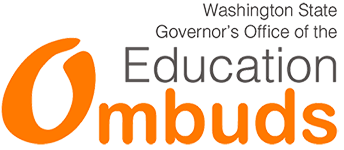Washington state’s special education rules define a Behavioral Intervention Plan, or BIP, as a plan that is incorporated into a student’s IEP if the team determines it is necessary, and that describes, at a minimum:
- The pattern of behavior that is impeding (getting in the way of) the student’s learning or others;
- The instructional and/or environmental conditions or circumstances that contribute to that pattern of behavior
- The positive behavioral interventions and supports to:
- reduce the behavior that is getting in the way of learning and increase desired prosocial behaviors and
- ensure the plan is implemented consistently across the student’s school day, including classes and activities; and
- The skills that will be taught and monitored as alternatives to the challenging behavior.
Most importantly, BIPs should describe an alternative behavior that the student will be taught to replace the inappropriate behavior – this is often called a “replacement behavior.”
The plan should identify what replacement behavior will be taught, how it will be taught, and who is responsible for teaching it to the student.
The plan should identify strategies and instruction that will
- provide alternatives to challenging behaviors,
- reinforce desired behaviors, and
- reduce or eliminate the frequency and severity of challenging behaviors.
Positive behavioral interventions include the consideration of environmental factors that may trigger challenging behaviors and teaching your student the skills to manage her or his own behavior.
What do we mean by "Behavior"?
Behavior is everything we do – it can be words, actions, gestures or a combination of those. Behaviors can be observed; they can be seen or heard.
Disruptive or “externalizing” behaviors, such as yelling, hitting, or breaking things, often draw the most attention, and discipline.
Other behaviors that are less obvious or disruptive to others can still be significant and interfere with a student’s own learning, like avoiding class or peer interactions, or engaging in self-harm.
If the behavior is persistent and is interfering with learning, you can ask about doing an FBA and developing a BIP to address it.
